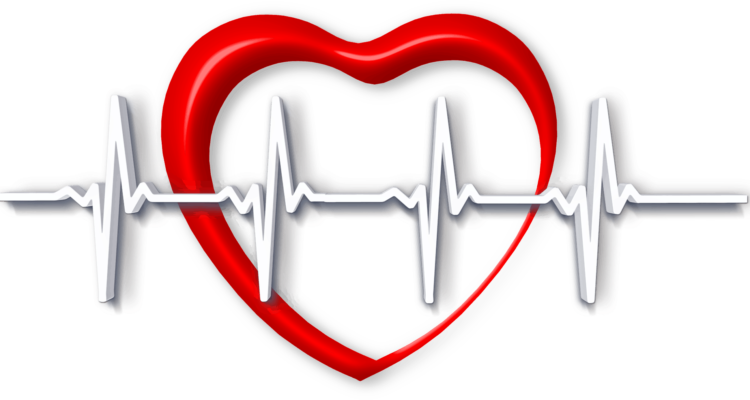
Cholesterol is good and bad for the body
Our bodies need cholesterol for making hormones, building normal cell walls and for proper digestion, but excessive cholesterol in our blood causes waxy plaques of cholesterol to build up in our blood vessels. This buildup causes the arteries to narrow in a process called atherosclerosis. If it gets severe enough the loss of proper blood flow carrying oxygen and nutrients can cause chronic organ damage and disease. If blood flow is suddenly cut off in an artery of the heart from a plaque rupture with clot formation, this would result in a heart attack. If a plaque ruptures in a large artery, it can also travel downstream into a small artery causing an occlusion with sudden loss of blood supply which is what happens in most strokes. If the blood flow is not immediately restored, the damage becomes permanent and loss of function or death results.
Sources of the body’s cholesterol
Our bodies have two main sources of cholesterol. The liver which makes enough cholesterol to meet all the needs of the body accounting for 75-80% of the cholesterol in the blood and the diet the other 20-25%. Thus, blood cholesterol is mainly a function of the genes one inherits which is why some people have low cholesterol despite a “bad” diet and other have high cholesterol despite a “good” diet. This is not to say cholesterol levels do not improve with a better diet which it can up to 15-20%, but it means do not assume a good blood cholesterol level given a good diet.
Good and bad cholesterol, huh?
Within the body there are different types of carriers of cholesterol in the blood. The good cholesterol carrier is primarily the high-density lipids (HDL) and the bad is primarily low-density lipids (LDL). The HDL is like a recycler that takes the cholesterol from the cholesterol build ups back to the liver reducing plaque build-up. The LDL is like a depositor that takes cholesterol from the liver and dumps it into the plaque build ups. Thus it is best not to look simply at total cholesterol but to look at the HDL and LDL separately since you can have high total cholesterol but it be good for your health if it is due to a really high HDL level. If the HDL is higher than your LDL and over 100 mg/dl then you are blessed with great cholesterol genes.
Diet matters and it is proven
Everyone that has high LDL or bad cholesterol should be on a diet to lower the cholesterol. The best diet for this is the Mediterranean diet and the Ornish diet. The Ornish diet is a very low-fat/high carb vegan diet and the Mediterranean diet is less restrictive diet and more neutral in the carb/protein/fat intake. Both diets are based on two main principles which are lowering the amount of saturated fats in the diet and choosing whole foods that are not processed. Both diets have shown to prevent or slow the progression of heart and stroke disease as well as help prevent diabetes and certain types of cancers compared with a typical American diet.
Cholesterol medication 101
For those that still have high LDL cholesterol despite a healthy diet AND are at an increased risk of heart disease OR people with heart or stroke disease regardless of cholesterol then the benefit of cholesterol lower medication typically outweigh any risks of the medication. However, not all cholesterol lowering medications are the same when it comes to lowering cholesterol AND preventing cardiovascular disease. Statin mediations like Lipitor and Crestor have overwhelming evidence that they significantly lower cholesterol and reduce heart and stroke disease. Niacin, fish oils, Omega 3s and bile acid binding medications/nutraceuticals have not consistently proven to prevent heart disease despite helping to lower cholesterol in the blood stream. Zetia another type of medication has been shown to reduce cholesterol but has only mild benefit at reducing heart attacks and strokes. It is typically used to add to statins when the cholesterol does not lower enough on the statin alone or for those that cannot tolerate statin medications. The newer injectables PCSK-9 inhibitors have proven to substantially lower cholesterol like statins and have some convincing evidence that prevent heart disease. However, they are expensive and typically used for people with advanced heart disease already taking statins or those with advanced heart disease that do not tolerate statins.
Assessing risk
To calculate your risk of heart/stroke disease search for cardiac risk calculator or go to cvriskcalculator.com . You will need to know your current blood pressure and most recent cholesterol numbers and it will ask for age, sex, race and whether you are on medication for high blood pressure, have diabetes or smoke. Those are important factors in determining your 10-year risk of having a heart attack or stroke. Some other factors not included in the numbers are whether you are overweight with a BMI above 30 and your family history as whether you have a healthy diet or not and whether you exercise. If your risk is over 10% then treating the cholesterol with statin medications would be recommended. If you fall in a gray area 5-10% then you may want to consider going on a statin if you have any of the other risk factors listed here. If you are not sure then talk with your doctor.
The wrap up
Cardiovascular disease is the most common cause of morbidity and death in the US accounting for 1 in every 3 deaths. Almost 50% of the US population over the age of 25 has some form of underlying disease and the risk increases with age. If you are at higher risk, then lowering your cholesterol with diet and medications especially statin medication can dramatically reduce your risk up with estimates up to 30-40%. The combined use of blood pressure and high cholesterol medications has had dramatic impact on reducing cardiovascular disease and increasing life expectancy in the US in the last few decades. So, the verdict says that if you are at increased risk due to your cholesterol and are not taking medication with a heart healthy diet and lifestyle then you should seriously consider these options.


